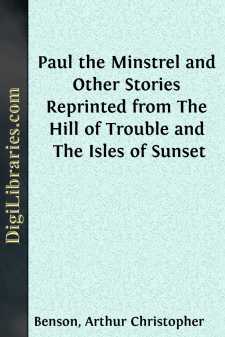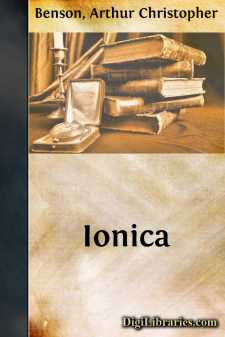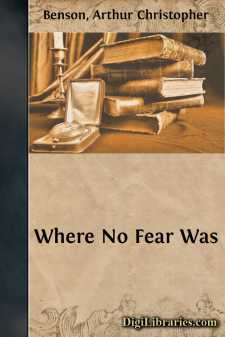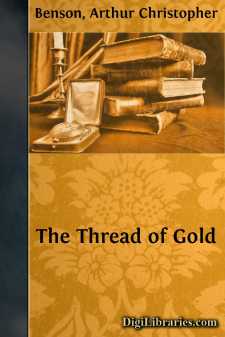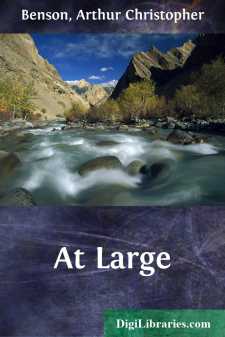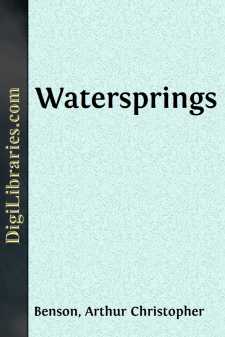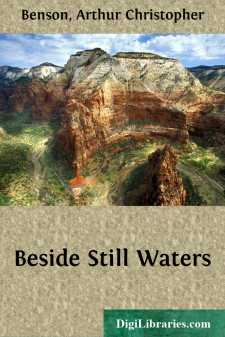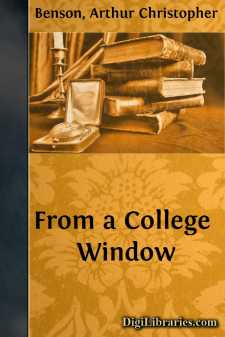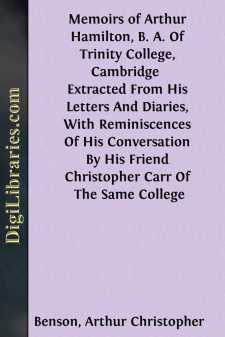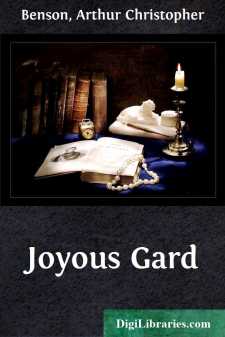Categories
- Antiques & Collectibles 13
- Architecture 36
- Art 48
- Bibles 22
- Biography & Autobiography 813
- Body, Mind & Spirit 142
- Business & Economics 28
- Children's Books 15
- Children's Fiction 12
- Computers 4
- Cooking 94
- Crafts & Hobbies 4
- Drama 346
- Education 46
- Family & Relationships 57
- Fiction 11828
- Games 19
- Gardening 17
- Health & Fitness 34
- History 1377
- House & Home 1
- Humor 147
- Juvenile Fiction 1873
- Juvenile Nonfiction 202
- Language Arts & Disciplines 88
- Law 16
- Literary Collections 686
- Literary Criticism 179
- Mathematics 13
- Medical 41
- Music 40
- Nature 179
- Non-Classifiable 1768
- Performing Arts 7
- Periodicals 1453
- Philosophy 64
- Photography 2
- Poetry 896
- Political Science 203
- Psychology 42
- Reference 154
- Religion 513
- Science 126
- Self-Help 84
- Social Science 81
- Sports & Recreation 34
- Study Aids 3
- Technology & Engineering 59
- Transportation 23
- Travel 463
- True Crime 29
Arthur Christopher Benson
Arthur Christopher Benson (1862–1925) was an English essayist, poet, and academic known for his reflective and introspective writings. He is most famous for his lyric poem "Land of Hope and Glory," which was set to music by Edward Elgar and became an iconic British patriotic song. Benson also served as the Master of Magdalene College, Cambridge, and authored numerous essays and memoirs that explore themes of self-awareness, education, and the beauty of the English countryside.
Author's Books:
Sort by:
PREFACE These stories were all written at a very happy time of my life, and they were first published when I was a master at Eton with a boarding-house. A house-master is not always a happy man. It is an anxious business at best. Boys are very unaccountable creatures, and the years between boyhood and adolescence are apt to represent an irresponsible mood. From the quiet childhood at home the boys have...
more...
INTRODUCTION WILLIAM CORY (Johnson) was born at Torrington in Devonshire, on January 9, 1823. He was the son of Charles William Johnson, a merchant, who retired at the early age of thirty, with a modest competence, and married his cousin, Theresa Furse, of Halsdon, near Torrington, to whom he had long been attached. He lived a quiet, upright, peaceable life at Torrington, content with little, and...
more...
THE SHADOW There surely may come a time for each of us, if we have lived with any animation or interest, if we have had any constant or even fitful desire to penetrate and grasp the significance of the strange adventure of life, a time, I say, when we may look back a little, not sentimentally or with any hope of making out an impressive case for ourselves, and interrogate the memory as to what have...
more...
PREFACE I sate to-day, in a pleasant hour, at a place called The Seven Springs, high up in a green valley of the Cotswold hills. Close beside the road, seven clear rills ripple out into a small pool, and the air is musical with the sound of running water. Above me, in a little thicket, a full-fed thrush sent out one long-drawn cadence after another, in the joy of his heart, while the lengthening...
more...
I. THE SCENE Yes, of course it is an experiment! But it is made in corpore vili. It is not irreparable, and there is no reason, more's the pity, why I should not please myself. I will ask—it is a rhetorical question which needs no answer—what is a hapless bachelor to do, who is professionally occupied and tied down in a certain place for just half the year? What is he to do with the other...
more...
I The bright pale February sunlight lay on the little court of Beaufort College, Cambridge, on the old dull-red smoke-stained brick, the stone mullions and mouldings, the Hall oriel, the ivied buttresses and battlements, the turrets, the tiled roofs, the quaint chimneys, and the lead-topped cupola over all. Half the court was in shadow. It was incredibly picturesque, but it had somehow the look of a...
more...
BESIDE STILL WATERS I The Family—The Scene—The Church—Childhood—Books Hugh Neville was fond of tender and minute retrospect, and often indulged himself, in lonely hours, with the meditative pleasures of memory. To look back into the old years was to him like gazing into a misty place, with sudden and bright glimpses, and then the cloud closed in again; but it was not only with his own life that...
more...
THE POINT OF VIEW I have lately come to perceive that the one thing which gives value to any piece of art, whether it be book, or picture, or music, is that subtle and evasive thing which is called personality. No amount of labour, of zest, even of accomplishment, can make up for the absence of this quality. It must be an almost wholly instinctive thing, I believe. Of course, the mere presence of...
more...
CHAPTER I He was born November 2, 1852. He was the second son of a retired cavalry officer, who lived in Hampshire. Besides his elder brother, there were three sisters, one of whom died. His father was a wealthy man, and had built himself a small country house, and planted the few acres of ground round it very skillfully. Major Hamilton was a very religious man, of the self-sufficient, puritanical, and...
more...
PREFACE It is a harder thing than it ought to be to write openly and frankly of things private and sacred. "Secretum meum mihi!"—"My secret is my own!"—cried St. Francis in a harrowed moment. But I believe that the instinct to guard and hoard the inner life is one that ought to be resisted. Secrecy seems to me now a very uncivilised kind of virtue, after all! We have all of us, or...
more...


